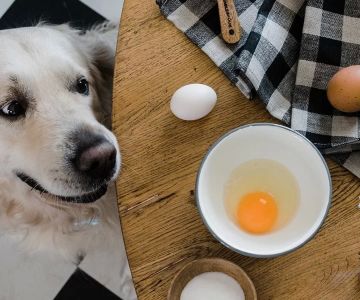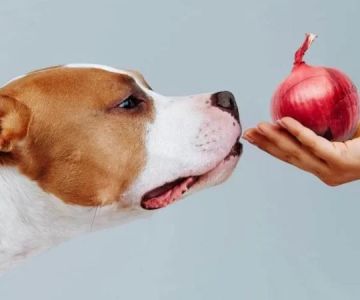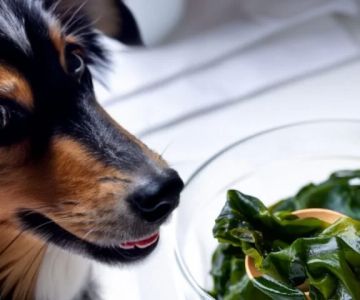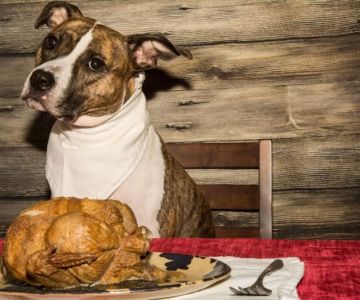Can Dogs Eat Rice and Chicken? A Guide to Safe and Healthy Meals
- Is Rice and Chicken Safe for Dogs?
- Benefits of Rice and Chicken for Dogs
- How to Properly Prepare Rice and Chicken for Dogs
- Potential Risks of Feeding Dogs Rice and Chicken
Rice and chicken are two common foods that many dog owners may consider when they want to provide a simple, easy-to-digest meal for their pets. Whether you’re dealing with an upset stomach or just looking for a healthy, homemade option, rice and chicken can be a safe and nutritious meal for most dogs. However, as with any change in diet, it’s important to understand when it’s appropriate to feed your dog rice and chicken, as well as how to prepare these foods properly.
1. Is Rice and Chicken Safe for Dogs?
Yes, rice and chicken are generally safe for dogs when prepared properly. In fact, many veterinarians recommend this simple meal for dogs that are recovering from illness or experiencing digestive issues, such as diarrhea or vomiting. Both rice and chicken are mild and easy on the stomach, making them a good choice for dogs with sensitive digestive systems. However, it’s important to ensure the rice and chicken are plain and free from seasonings, oils, or additives that could harm your dog.
1.1. Why is Rice and Chicken Recommended for Dogs?
Rice and chicken are both easily digestible and low in fat, making them ideal for dogs with gastrointestinal issues. When dogs are recovering from an upset stomach, their digestive system needs rest. The bland nature of rice and chicken helps to soothe the stomach and provides the body with essential nutrients without putting too much strain on the digestive system.
1.2. Who Should Avoid Rice and Chicken?
While rice and chicken are suitable for most dogs, there are a few exceptions. If your dog has a food allergy or sensitivity to chicken or grains, this meal may not be appropriate. Always consult with your vet if you're unsure whether rice and chicken are safe for your dog, especially if they have a history of food allergies or digestive issues.
Now that we know rice and chicken are generally safe for dogs, let’s take a closer look at the benefits of feeding your dog this meal.
2. Benefits of Rice and Chicken for Dogs
Rice and chicken offer several nutritional benefits that contribute to your dog’s health. Below are some key reasons why rice and chicken can be an excellent option for your dog’s diet:
2.1. Easy on the Stomach
Rice is known for its ability to soothe an upset stomach. It’s gentle on the digestive system and can help firm up loose stools. When paired with chicken, it creates a balanced meal that provides the necessary nutrients without overwhelming the stomach.
2.2. High-Quality Protein
Chicken is an excellent source of lean protein, which is essential for your dog’s muscle health and overall well-being. Protein helps in the repair and growth of tissues, making it crucial for dogs, especially during recovery from illness or surgery.
2.3. Supports Recovery
When dogs are ill, especially with digestive issues, they may not want to eat their regular food. Offering a bland meal like rice and chicken can entice them to eat, helping them regain strength and recover faster. The combination of carbohydrates from the rice and protein from the chicken gives them the energy they need while they recuperate.
2.4. Versatile and Simple
Rice and chicken can be easily modified to suit your dog’s preferences or needs. You can add other dog-safe ingredients, such as boiled carrots or peas, to provide more variety and nutrients. It’s a simple and versatile meal that can be made in large batches for meal prep, ensuring you always have a healthy option ready when needed.
If you decide to feed your dog rice and chicken, it’s important to know how to prepare the meal properly to ensure it's both safe and nutritious for your pet.
3. How to Properly Prepare Rice and Chicken for Dogs
Proper preparation is key to making rice and chicken a healthy and safe meal for your dog. Here’s how you can prepare rice and chicken at home:
3.1. Cooking the Chicken
When preparing chicken for your dog, always remove the skin and bones. Skin can be too fatty for your dog, and bones can pose a choking hazard or cause internal injury. Boil or bake the chicken without adding any seasoning, oils, or salt. This will ensure that the chicken is plain and safe for your dog to eat.
3.2. Cooking the Rice
For rice, plain white rice is the best option, as it’s easily digestible for dogs. Cook the rice in water, avoiding any oils, butter, or salt. Brown rice can also be used but is more fibrous, which may be harder for some dogs to digest, especially when they’re sick. Ensure the rice is soft and well-cooked to make it gentle on your dog’s stomach.
3.3. Combining the Ingredients
Once the chicken and rice are cooked, combine them in a 1:2 ratio of chicken to rice. You can mix them together in a bowl and serve the meal either warm or at room temperature. Start by offering small portions to see how your dog reacts, and gradually increase the serving size as their condition improves.
3.4. Adding Supplements (Optional)
If your dog needs extra nutrients, consider adding a small amount of dog-safe vegetables, like boiled carrots or peas, to the mix. Always check with your vet to ensure the added ingredients are safe for your dog’s specific health needs.
While rice and chicken are generally safe, there are a few potential risks to consider when feeding your dog this meal.
4. Potential Risks of Feeding Dogs Rice and Chicken
Although rice and chicken can be an excellent meal for dogs, there are some potential risks to keep in mind:
4.1. Lack of Balanced Nutrition
Rice and chicken alone may not provide all the essential vitamins and minerals that your dog needs. While it’s a good short-term solution for digestive issues or recovery, it’s important not to rely solely on this meal for long-term feeding. You should ensure that your dog is receiving a balanced diet with all the necessary nutrients by adding high-quality dog food to their regular meals.
4.2. Food Sensitivities
Some dogs may have food sensitivities or allergies to chicken or grains like rice. If your dog shows signs of an allergic reaction, such as itching, swelling, or gastrointestinal upset, discontinue the rice and chicken and consult your vet for advice on alternative meals.
4.3. Overfeeding
As with any food, portion control is important. Overfeeding rice and chicken can lead to weight gain, especially if your dog isn’t getting the necessary exercise. Make sure to feed the appropriate amount based on your dog’s size, age, and activity level.
If you want to learn more about how to ensure your dog’s diet is well-balanced and how to handle specific health concerns, visit Hidden Brook Veterinary for expert advice and recommended products to keep your dog happy and healthy.











